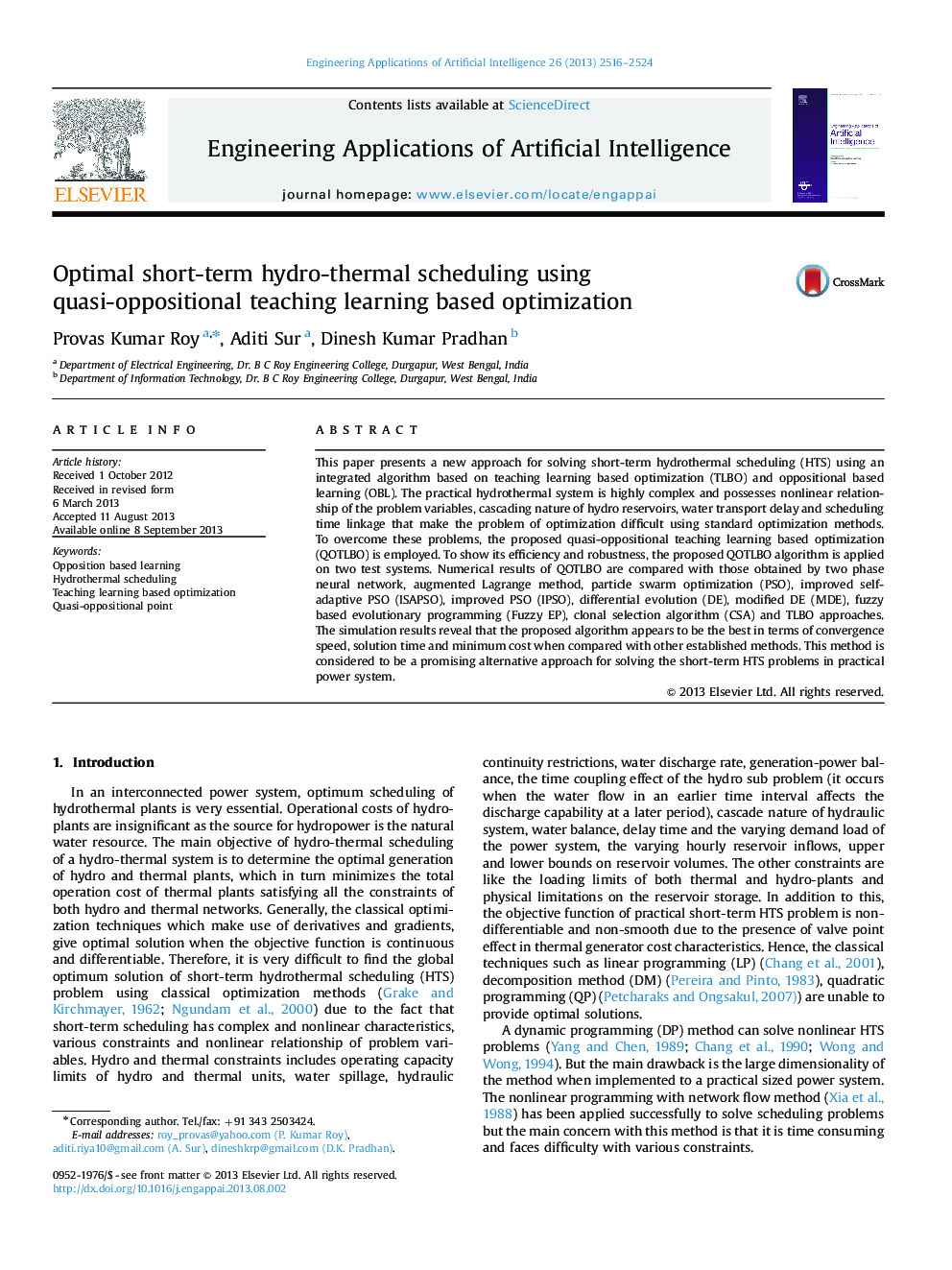| Article ID | Journal | Published Year | Pages | File Type |
|---|---|---|---|---|
| 380809 | Engineering Applications of Artificial Intelligence | 2013 | 9 Pages |
•Hydrothermal scheduling by teaching learning based optimization is developed.•To enhance the convergence speed, oppositional based learning in integrated with TLBO.•The performance of TLBO and QOTLBO are compared with other optimization techniques.•Robustness of the proposed methods is checked through statistical analysis.
This paper presents a new approach for solving short-term hydrothermal scheduling (HTS) using an integrated algorithm based on teaching learning based optimization (TLBO) and oppositional based learning (OBL). The practical hydrothermal system is highly complex and possesses nonlinear relationship of the problem variables, cascading nature of hydro reservoirs, water transport delay and scheduling time linkage that make the problem of optimization difficult using standard optimization methods. To overcome these problems, the proposed quasi-oppositional teaching learning based optimization (QOTLBO) is employed. To show its efficiency and robustness, the proposed QOTLBO algorithm is applied on two test systems. Numerical results of QOTLBO are compared with those obtained by two phase neural network, augmented Lagrange method, particle swarm optimization (PSO), improved self-adaptive PSO (ISAPSO), improved PSO (IPSO), differential evolution (DE), modified DE (MDE), fuzzy based evolutionary programming (Fuzzy EP), clonal selection algorithm (CSA) and TLBO approaches. The simulation results reveal that the proposed algorithm appears to be the best in terms of convergence speed, solution time and minimum cost when compared with other established methods. This method is considered to be a promising alternative approach for solving the short-term HTS problems in practical power system.
